African Statistics Day: Unpacking the Importance of Statistics in Biodiversity Conservation
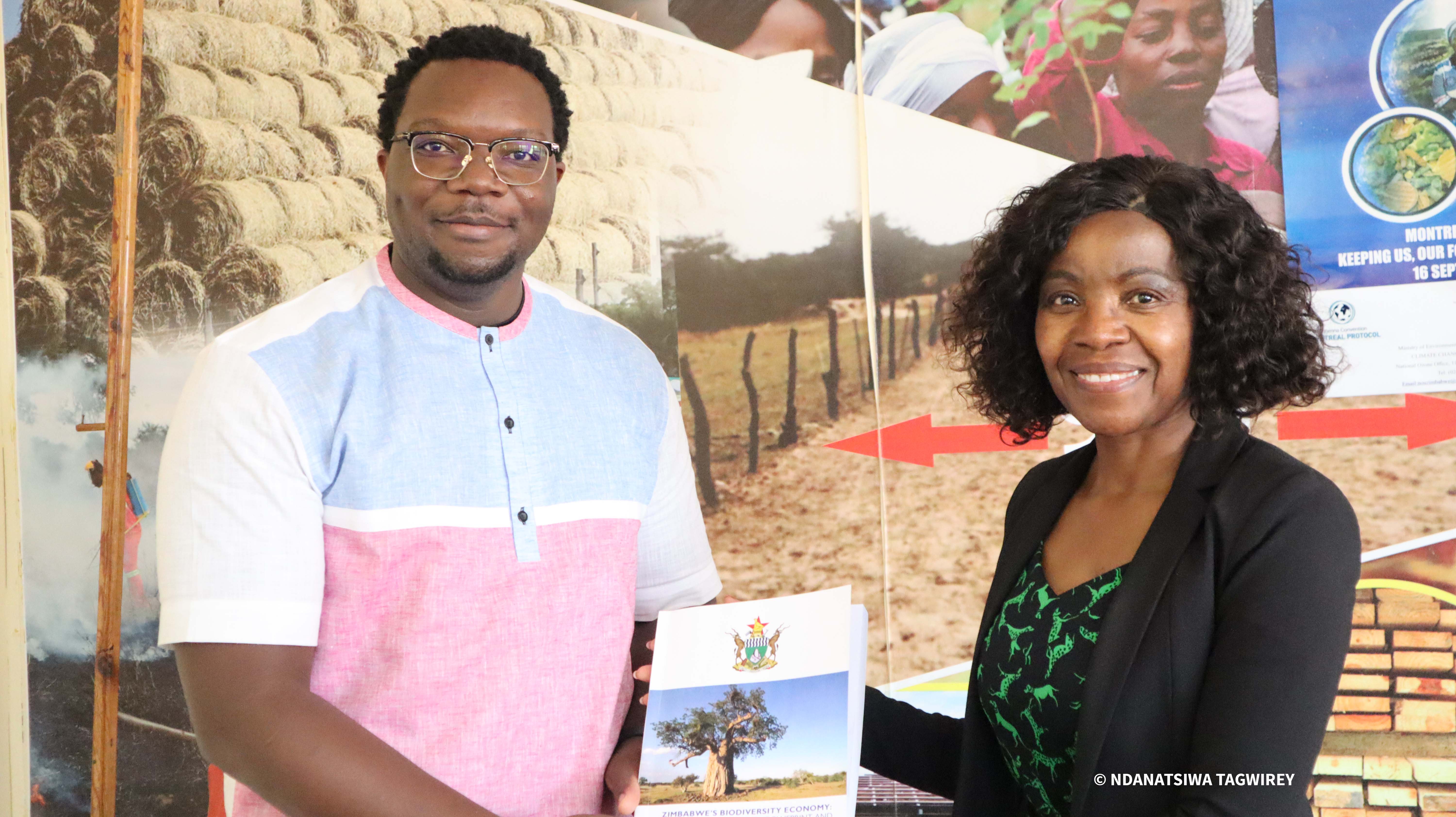
September 13, 2023, will forever remain a critical day in Zimbabwe’s biodiversity economy circles following the launch of the Zimbabwe Biodiversity Economy (ZBE) Report by the Ministry of Environment, Climate and Wildlife with support from the African Wildlife Foundation (AWF).
Among other figures, the ZBE report touched on the contribution of the wildlife sector to the Gross Domestic Product (GDP) with indications that the sector contributes significantly to Zimbabwe’s economy through nature-based tourism, sport hunting and agriculture. The report revealed that in 2019 alone, more than 33% of all foreign tourists visited state protected areas generating 4.1% of GDP and 5.6% of employment through nature-based tourism. It also pinpointed that trophy hunting revenues have consistently declined in recent years from US$27.2 million in 2015 to US$19.1 million in 2019; -such statistical data is helpful in identifying trends, patterns and opportunities in the wildlife sector with possibilities of identifying where critical interventions are needed.
The critical ZBE report launch came barely two months before the annual commemoration of African Statistics Day, an annual event celebrated on 18 November to raise public awareness of the importance of statistics in social and economic life, according to the United Nations Economic Commission for Africa. Indeed, statistics are essential in biodiversity conservation as they aid in the monitoring and measuring of biodiversity, identifying the threats to biodiversity, designing conservation interventions, and identifying opportunities and gaps within the biodiversity economy. To unpack the role of statistics in biodiversity conservation with a bias on the ZBE report, we interviewed AWF Director, Global Leadership Edwin Tambara on the 2023 African Statistics Day to find out more.
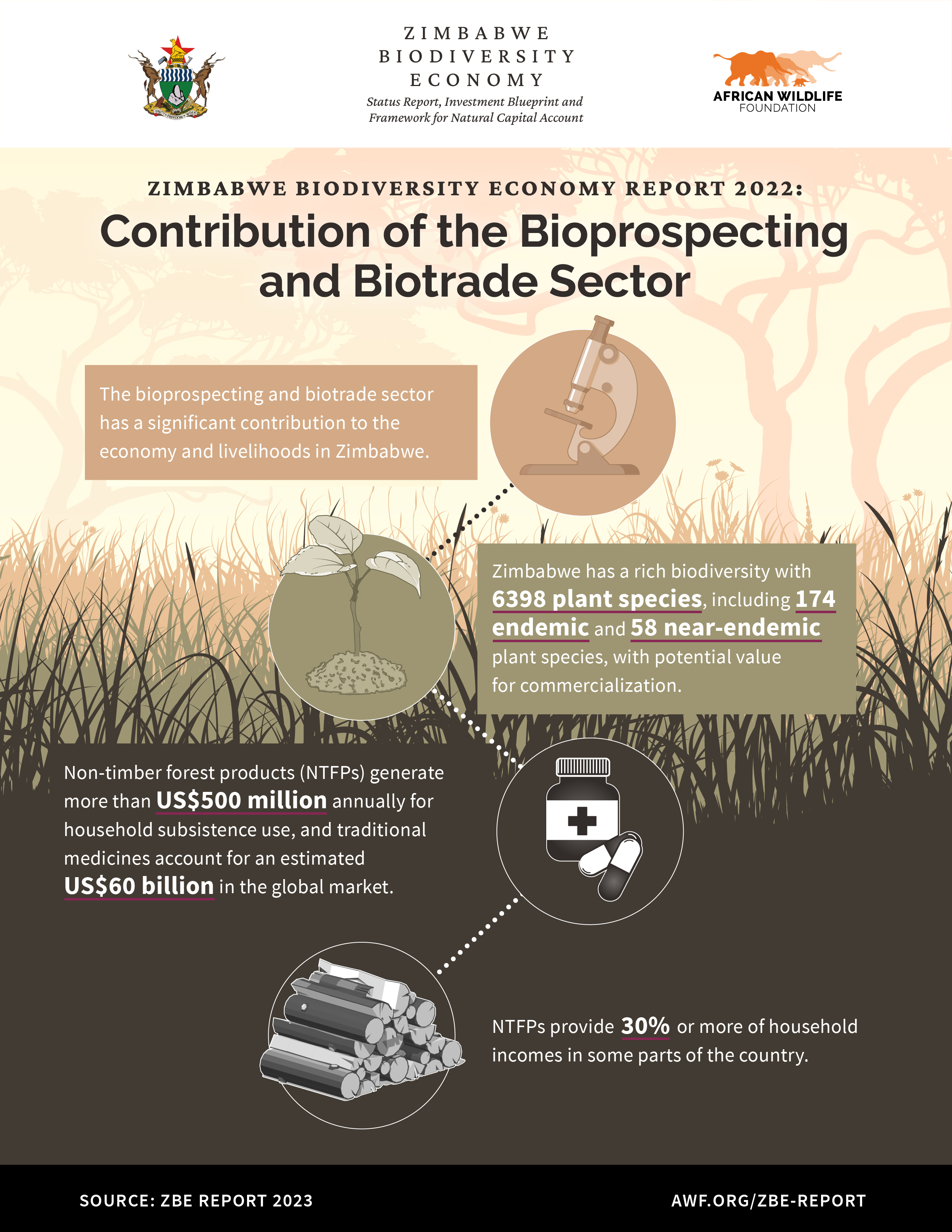
In your view, which findings stand out the most in the Zimbabwe Biodiversity Economy report?
First, the whole exercise around ZBE was vital, including the process, which is as important as the product. This report sets a critical foundational baseline for understanding the full breadth of the country's biodiversity economy and its growth potential, the set of players involved and their roles, and those benefiting from it and to what extent. Secondly, the report identifies high-potential biodiversity sub-sectors. It details the various ways people use nature for livelihoods or commercial purposes. Thirdly, the report shows how nature contributes to the country's economy in multiple ways, including employment, revenue generation, and export earnings, among other indirect benefits such as health, support to agricultural systems, and other sectors. Lastly, the ZBE report also unearthed and raised the profile of new frontiers and opportunities, including bioprospecting and natural capital accounting.
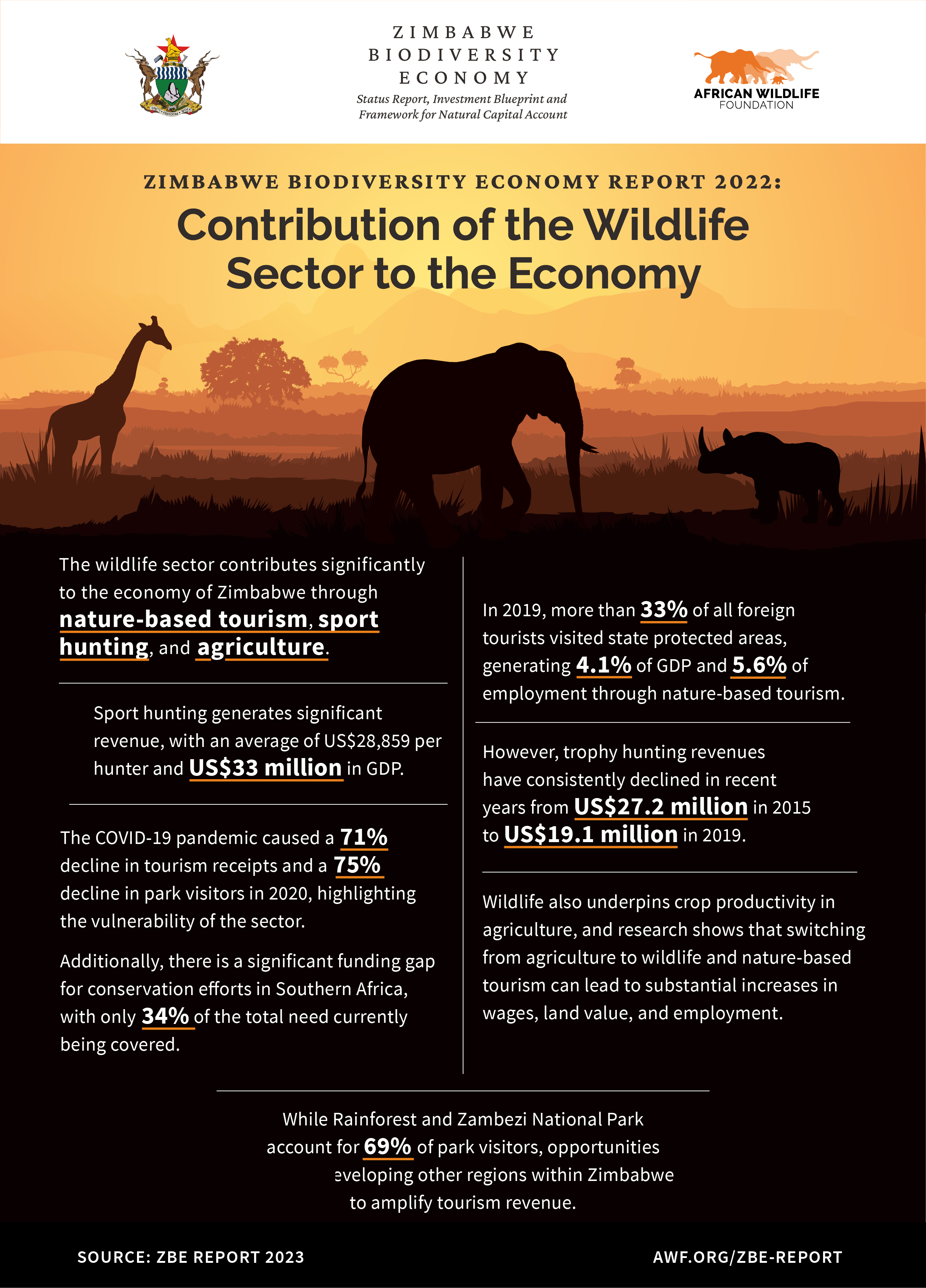
What are the most important implications of the report on Zimbabwe's economy and the environment?
The implications of the ZBE report on Zimbabwe's economy and environment cannot be overstated. From an economic standpoint, the report unveils the biodiversity economy as a sleeping giant, an integral sector intertwined with other industries. It showcases the immense potential for job creation, income generation, and sustainable growth through the development of biodiversity-related sectors. Simultaneously, the report underscores the urgent need for biodiversity conservation and sustainable use to preserve ecosystem health, maintain essential services, and safeguard against biodiversity loss. This report sets the stage for Zimbabwe to unlock its economic and environmental potential.
What role can statistics play in supporting the development of the biodiversity economy in Zimbabwe?
Statistics is fundamental to shaping appropriate policies, plans, and investment products to drive a sector. Statistics are a critical ally in the development of Zimbabwe's biodiversity economy. They provide accurate data and enable informed decision-making, policy formulation, and targeted investments. They offer insights into the current state of biodiversity, identify trends, assess economic impacts, and guide sustainable practices. Statistics help stakeholders understand the value of biodiversity, measure its contribution to the economy, and track progress toward sustainability goals. By harnessing the power of statistics, Zimbabwe can shape effective strategies and drive the development of a thriving biodiversity economy.
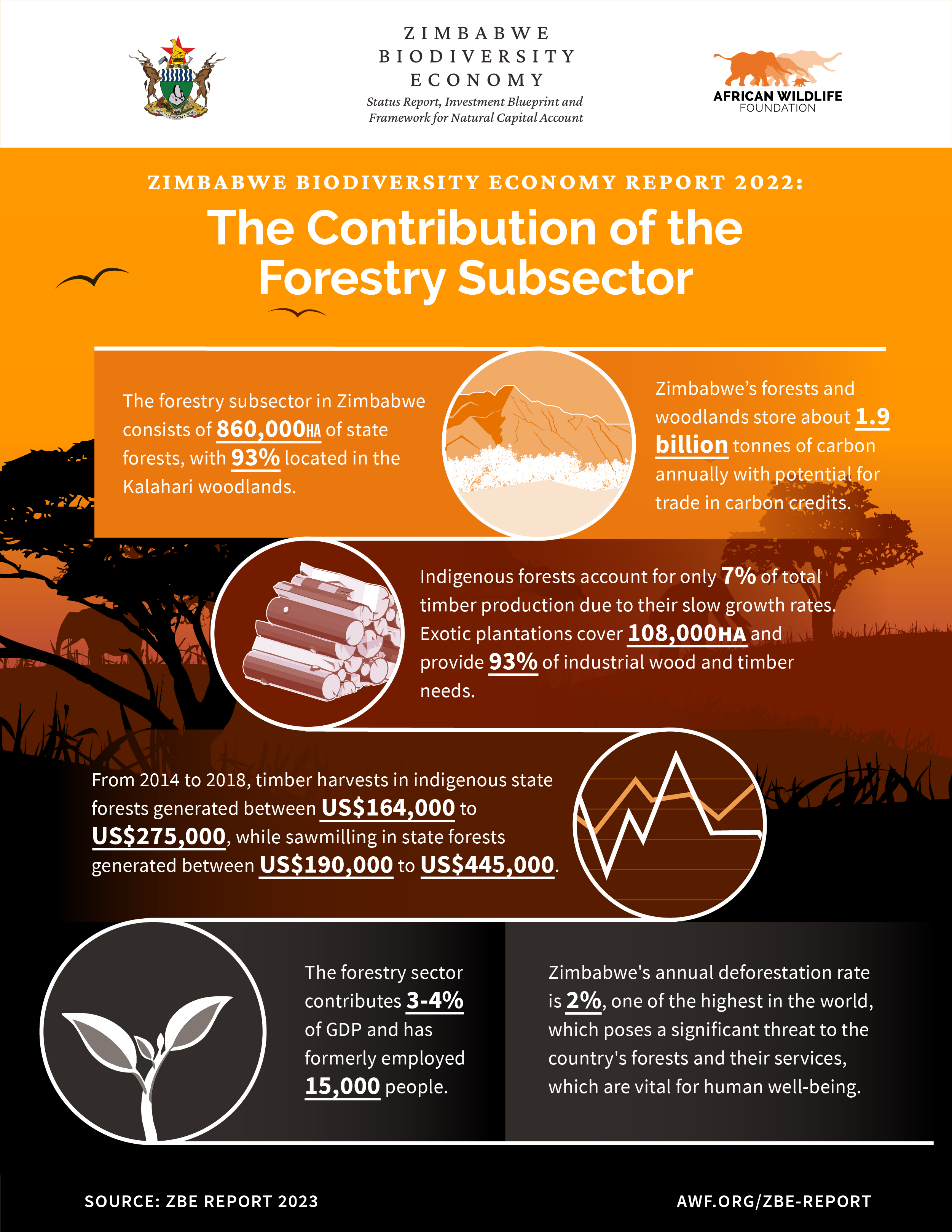
Now that the ZBE report is there, what do you think is the future of the biodiversity economy in Zimbabwe?
With the Zimbabwe Biodiversity Economy report now available, the future of Zimbabwe's biodiversity economy holds great potential. By implementing the report's recommendations, such as promoting sustainable practices, strengthening conservation efforts, building investable products, and investing in biodiversity-related value chains and sub-sectors, Zimbabwe can foster a thriving and resilient biodiversity economy that benefits both people and the environment. Equally important, this provides a basis for better integrated economic planning for the country in a way that positions biodiversity conservation not as a burden but as an asset with opportunities.
How can biodiversity be better integrated into National Accounts?
Integrating biodiversity into National Accounts necessitates a comprehensive whole-of-economy approach that permeates all sectors and policies. This involves incentivizing ecosystem restoration, encouraging sustainable land use, and integrating biodiversity values into regulations, policies, and planning. Additionally, linking biodiversity indicators to national economic accounts is crucial. Natural capital accounting offers a powerful tool to achieve this integration, and Zimbabwe can leverage the Natural Capital Accounting Feasibility Framework provided in the report as a starting point. With the support of development partners, Zimbabwe can embark on a journey to develop detailed accounts for its natural resource base, ensuring the true value of biodiversity is recognized and accounted for.
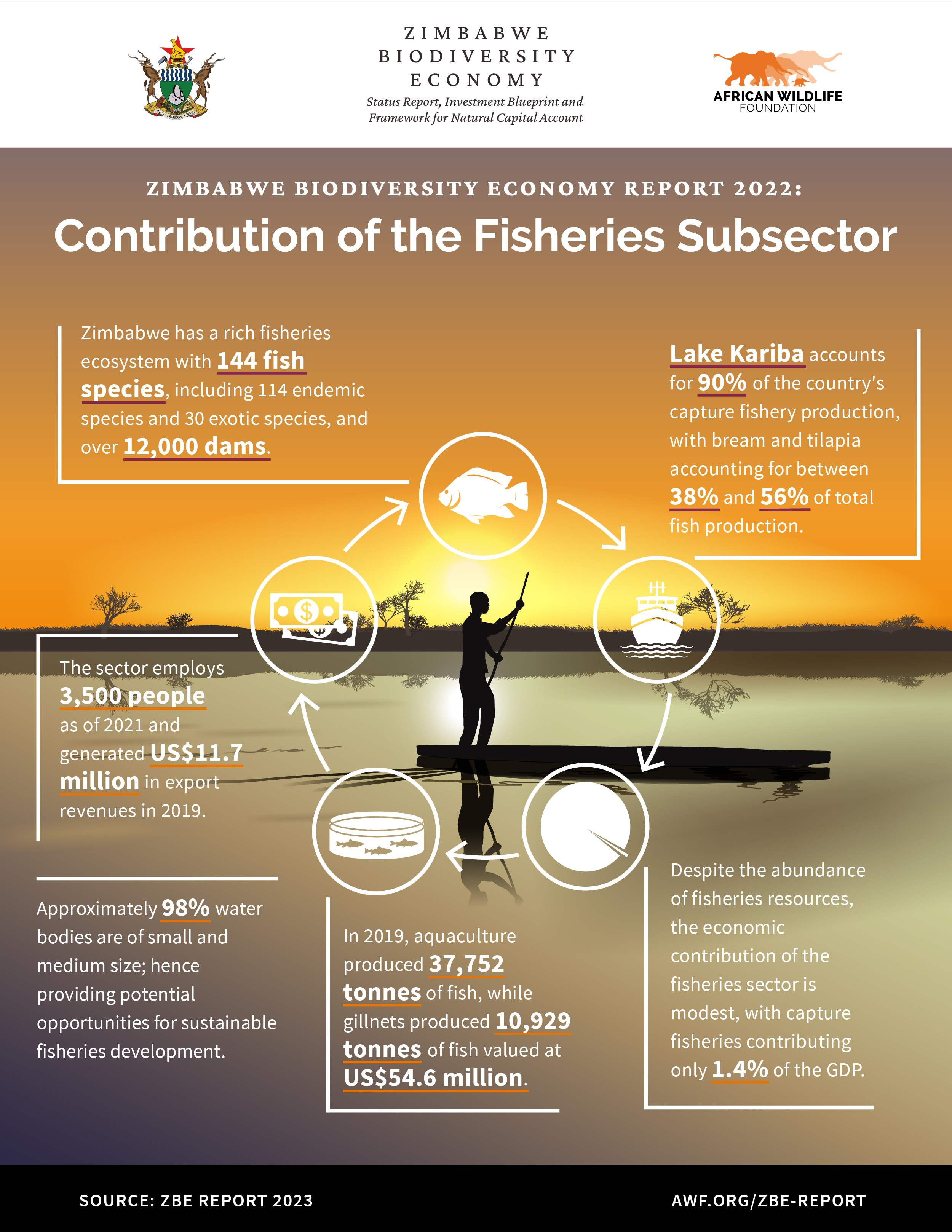
What are the data gaps within the biodiversity economy?
While the ZBE report is a significant step forward, several data gaps persist in Zimbabwe's biodiversity economy. These include limited data on the economic value of ecosystem services, inadequate monitoring of biodiversity indicators, insufficient information on the contributions of small-scale enterprises, and a need for comprehensive databases on biodiversity-related sectors. Addressing these gaps requires concerted efforts to improve data collection, establish robust monitoring systems, and foster collaboration among relevant stakeholders. By bridging these data gaps, Zimbabwe can enhance decision-making, policy development, and sustainable management of its biodiversity resources.